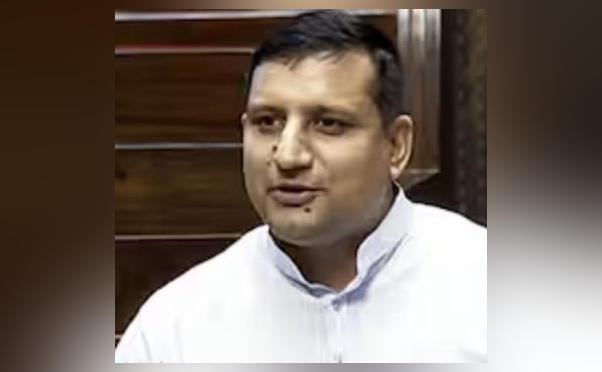
J&K CM’s Remark on Water Sharing Unreasonable: Akali Dal Leader
In a recent controversy, Jammu and Kashmir Chief Minister Omar Abdullah’s statement on not sharing any water with Punjab has sparked a heated debate. The Shiromani Akali Dal leader, Daljit Singh Cheema, has criticized Abdullah’s remark, calling it “unreasonable” and “unjustifiable”.
The controversy began when Abdullah made a statement in which he said that his government will not share any water with Punjab, citing the state’s own water needs and the fact that Jammu and Kashmir is already facing a severe water crisis. However, the Akali Dal leader has taken strong exception to this statement, saying that it goes against the principles of river water sharing and is a clear example of the Jammu and Kashmir government’s lack of concern for the welfare of other states.
“We did not expect him to comment on Punjab, as river water distribution has earlier also been in favour of other states like Rajasthan, Haryana, and Delhi,” Cheema said in a statement. “The water crisis in Jammu and Kashmir is a serious issue, and instead of blaming other states, they should focus on finding solutions to their own problems.”
Cheema also pointed out that Jammu and Kashmir has always been a major beneficiary of the Indus Waters Treaty, which was signed between India and Pakistan in 1960. Under the treaty, Pakistan agreed to allow India to use the waters of the Indus and its tributaries, including the Ravi, Beas, and Sutlej rivers, for irrigation and other purposes.
“Jammu and Kashmir has always received a substantial amount of water under the Indus Waters Treaty, and instead of sharing it with other states, they are now trying to hoard it for themselves,” Cheema said. “This is not only unjust but also irresponsible, as it can lead to serious water scarcity and famine in other states.”
The Akali Dal leader also criticized the Jammu and Kashmir government for its inconsistency on the issue of water sharing. “The Jammu and Kashmir government has always been talking about the need to preserve water resources and reduce water wastage, but now they are saying that they will not share any water with Punjab,” Cheema said. “This is a clear example of the government’s lack of commitment to the welfare of the people of Punjab and other states.”
The controversy has raised questions about the fairness of the Indus Waters Treaty and the way in which water is shared among different states in India. While Jammu and Kashmir has always been a major beneficiary of the treaty, other states like Punjab and Haryana have also been affected by the water sharing arrangements.
“Water is a precious resource, and it should be shared fairly among all states,” Cheema said. “Instead of trying to hoard it for themselves, the Jammu and Kashmir government should focus on finding solutions to the water crisis in the state and sharing the water resources with other states.”
The controversy is likely to continue, with both the Jammu and Kashmir government and the Akali Dal leader refusing to back down from their positions. However, one thing is clear: the issue of water sharing is a complex and sensitive issue that requires careful consideration and a commitment to finding a fair and sustainable solution.





